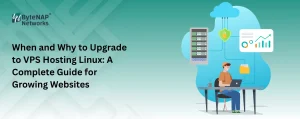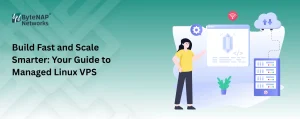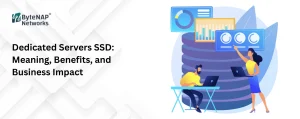In this blog post, we will be exploring what multi-cloud is, will be looking at the difference between multi-cloud and hybrid cloud, and later discuss the pros and cons of using multiple clouds. So, let’s dive in.
What is Multi-Cloud?
Multi-cloud is a term that signifies the utilization of two or more cloud computing services from various vendors/companies to form a single, heterogeneous web-hosting infrastructure.
To better grasp the theory of multi-cloud, you should first understand some common terms of multi-cloud environment.
IaaS (Infrastructure-as-a-Service)
IaaS is a cloud computing service wherein, the consumer obtains a virtualized environment over the internet. The IaaS provider sets the limit of the amount of hardware resource to be allocated to the Virtual Machine and boots up the machine with the selected operating system.
PaaS (Platform-as-a-Service)
PaaS is a cloud computing service wherein the PaaS provider offers a particular environment that could incorporate tools and applications, concentrated on creation and development. PaaS enables clients to develop, run, and control applications without the complications of maintaining and managing the underlying infrastructure.
SaaS (Software-as-a-Service)
SaaS is a cloud computing model wherein the software is licensed for utilization on a pay as you go model and centrally hosted over the internet. Rather than installing and maintaining the software, you need to access it through the internet. As a result, SaaS frees you from complicated software and hardware management. Some of the examples of SaaS are G Suite, Slack, and Dropbox.
Virtual Machine (VM)
A virtual machine is a software that offers similar functionality as a server. However, the physical resources are shared among the other virtual machines of the same host machine.
Subscription Model
The subscription model is wherein the consumers pay a recurring fee to utilize or access a product. Stopping the payment either minimizes the access or entirely removes the product from use.
Cloudification
The term cloudification basically refers to the migration of conventional applications from a local installation on the user’s system to web-based equivalents. For the proper running of applications, you need an active internet connection.
Multi-Cloud Refactoring
Multi-Cloud Refactoring is the rearchitecting of an application for comprehensive use on multiple cloud platforms.
Multi-Cloud Rebinding
Multi-Cloud Rebinding is the rearchitecting of an application for partial use or deployment on multiple cloud platforms.
Multi-Cloud Relocation
Multi-cloud relocation is migrating an on-premise application to be deployed on a cloud platform and utilize the cloud services to better enhance capabilities.
Meanwhile, you can read the article “What is the importance of cloud computing in the IoT revolution?”
As we have discussed what is multi-cloud, now let’s see the pros and cons of multi-cloud.
The Pros and Cons of Multi-Cloud
The multi-cloud environment has its own drawbacks and benefits. Let’s take a look at the pros and cons of multi-cloud.
Pros of Multi-Cloud
- Minimizes vendor lock-in/dependency.
- Concentrate on services required (certain offering, SLA, etc)
- More enhanced application availability/ uptime with multiple providers
- Save money through offloading operational expenses to providers.
- Easily meet the regulatory needs for data storage compliance.
Cons Of Multi-Cloud
- Managing various providers increases operational complexity.
- Possible Security concerns with multiple attacks across multiple providers.
- Requires more trained personnel who understands multi-cloud architectures.
- Possible bandwidth consumption and network latency issues.
The Difference Between Multi-Cloud and Hybrid Cloud
The terms “multi-cloud” and “hybrid-cloud” are often used interchangeably. However, from a technical aspect, they both are different.
Multi-cloud is a concept of using several cloud providers to offer the hosting environment for your whole application or business. In this type of setup, you use public and private WAN connections to offer connectivity to several cloud service deployments. Your application as a whole is hosted in multi-cloud to obtain benefits: geographical benefits, cost-saving, or some specific cloud features.
Where as a Hybrid cloud is a combination of local private hosting and cloud provider hosting. In this type of setup, you use your own infrastructure in your own data center however, connect to a cloud provider for specific advantages like managed feature set, price or redundancy.
Suggested For Further Reading:
- Difference Between VPS Cloud and VPS SSD
- What is Public Cloud Hosting?
Conclusion
We hope that through this article, you understood what is multi-cloud and what are pros and cons of multi-cloud.








